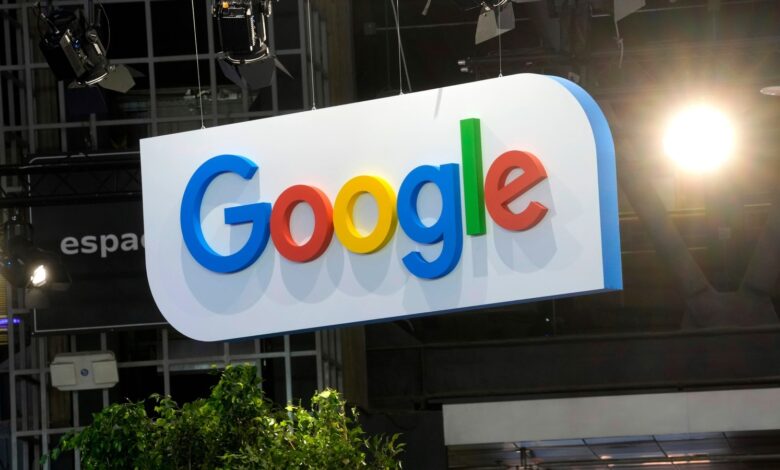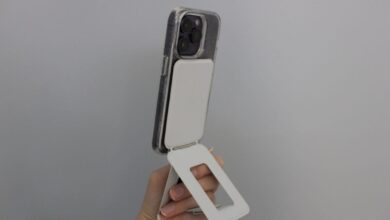Google’s Osterloh wants to beat Apple by launching earlier

With its hardware event on Tuesday, Alphabet Inc.’s Google is trying to outdo Apple’s annual iPhone launch — and put longtime CEO Rick Osterloh in the spotlight.
Osterloh, a former Motorola executive who joined Google in 2016, will lead the first major product launch after the company this year unified its hardware and Android operating system teams under his leadership. The reorganization expands Osterloh’s influence within the company and signals that Google intends to compete in hardware for the long term.
In a sign of its more aggressive push into consumer devices, Google moved the annual launch of its flagship Pixel smartphone from October to August, ahead of Apple Inc.’s next iPhone launch and drawing attention during a typically quiet period for the industry.
“For the first time, I feel like Alphabet is really serious about hardware and smartphones,” said Mandeep Singh, an analyst at Bloomberg Intelligence. “That reflects Rick’s leadership and what he’s done.”
Google has invested heavily in its Pixel line, including designing its own chips, sponsoring NBA playoff games and giving devices to superstar players like Giannis Antetokounmpo. But it continues to lag Apple in the high-end segment. Android partner Samsung Electronics Co. has captured much of the rest of the market in the United States, leaving little room for insurgents, even those as influential as Google.
Fierce competition hasn’t slowed Osterloh’s progress at Google, and giving him unilateral control of the company’s consumer services — replacing Hiroshi Lockheimer, who previously oversaw Android — could be a move to ensure Google can capitalize on the current move to monetize AI across devices.
Read more: Pixel 9 Pro Fold vs OnePlus Open
“The scope of Osterloh’s role is significant. It applies not just to Android but to other important platforms like Chrome,” said Ben Wood, principal analyst at CCS Insight. “This could signal Google’s realization that it needs a more cohesive approach across platforms, especially as the AI war intensifies.”
Singh said the latest wave of generative artificial intelligence features is likely to spark consumer interest in smartphones and prompt them to upgrade their devices more often. Samsung has positioned its Galaxy lineup as AI-first this year, and it reported double-digit sales growth for its Galaxy S24 lineup compared to the previous generation. Apple has also signaled that it intends to sell iPhones on the strength of a new set of features it calls Apple Intelligence.
Google’s Pixel line, which dates back to Osterloh’s time at the company, has been notable for its application of AI to camera software. It has delivered groundbreaking advances like Night Sight, a photo mode that has been emulated across the mobile industry, including Apple. And Google’s development of its own Tensor mobile chip has given the company a differentiating feature from its Android rivals.
Read more: Google Pixel 9, Pixel 9 Pro May Not Launch in India on August 14, Flipkart Lists Only Two Models
By holding the hardware launch a month ahead of the iPhone maker’s biggest annual event, Google is “getting ahead of Apple and also making a statement that we’re likely at least six months ahead of what Apple will be introducing for the iPhone 16,” Singh said. He added that Google was at least six months ahead of Apple, which has invested less in AI over the years than some other major tech companies.
Google’s strategy—combining hardware, software and services development—has echoes of Apple’s successful approach to device design. But as Osterloh seeks to capitalize on the opportunities presented by AI, he faces a long-standing challenge for Google: taking the fight to Apple without jeopardizing key relationships with hardware giants like Xiaomi Corp. that rely on the Android operating system.
Android President Sameer Samat said in an interview that his team maintains strict information-sharing boundaries to ensure its projects with the Pixel team and partners like Samsung don’t interfere with each other. But the team’s position under Osterloh’s leadership will make it easier for Google’s AI to flow from the lab to Android partners, Samat said.
“It allows us to take some of our AI innovations and actually get them out to more ecosystems more quickly,” he added. “It’s all about trying to move faster around our AI efforts and improve the consumer experience.”
Shortly after starting his new role, Osterloh traveled to Korea to meet with his Samsung counterpart, TM Roh, to ensure the partnership and collaboration between the two companies continued smoothly. He also attended Samsung’s Unpacked product launch event in July, which promised to bring Google’s AI-powered experience “to all Android devices.”
Singh said that because of the complexity of switching from Apple devices to Android, any hardware gains Google makes are likely to come at the expense of Android partners, which could be a useful incentive in itself.
This will put pressure on those brands to “move faster,” Singh said. “And overall, I think this will only strengthen the Google ecosystem.”
One more thing! We are now on WhatsApp Channel! Follow us there so you never miss any updates from the tech world. To follow HT Tech channel on WhatsApp, click This to join now!




